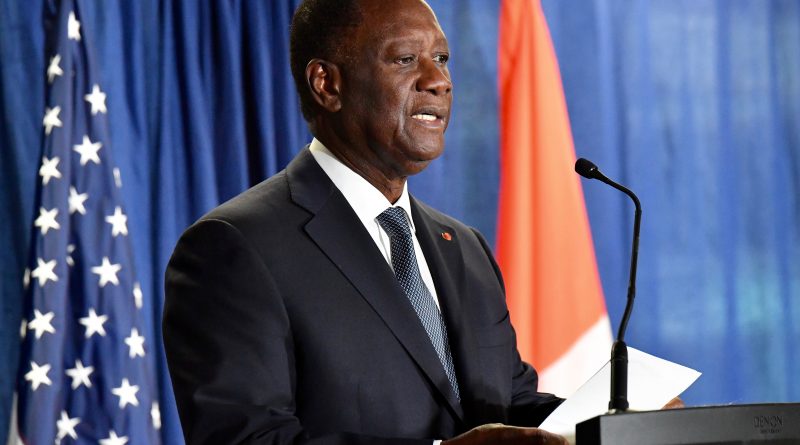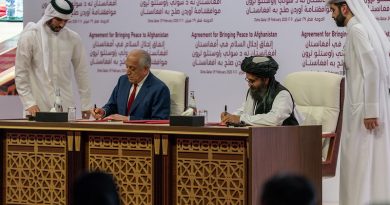Ivory Coast Incumbent Wins in Contested Election
Drew M Starbuck
Staff Writer
Ivory Coast President Alassane Ouattara has won a controversial third term in an election that his opponents are decrying as a sham. Ouattara won the election by a landslide, capturing 94 percent of the votes as the opposing candidates urged their supporters to abstain from voting in the election, according to BBC News. Violence has erupted over the election, an occurrence reminiscent of the country’s civil war in 2010. There have been calls from international observers, including the United Nations, European Union, France, and Ivory Coast’s neighbors, for leaders to keep the peace within the country.
Many polling stations were ransacked in opposition strongholds on Saturday and election materials were burned, BBC News reports. This has prompted protests from supporters of the opposition party in different areas across the country. It is unclear how the military will react to such actions, but it has added to the instability and tensions that many fear could destabilize the nation again, reports Al Jazeera. So far, this election season has resulted in over 40 deaths and the United Nations refugee agency said more than 3,200 people have fled into nations bordering Ivory Coast, such as Liberia, Ghana, and Togo, fearing the breakout of violence, according to Al Jazeera.
Not to be deterred by protests that the opposition organized, security forces loyal to the president forcibly dispersed opposition protesters with tear gas while the protestors erected barricades in the streets, the reports. In the eastern city of Daoukro, protestors arranged roadblocks and constructed barriers to block security forces. In the de facto capital of the Ivory Coast, Abidjan, tear gas was used to disperse protestors who had gathered close to the area where President Ouattara cast his ballot, according to BBC News.
Following the election, tensions continued to grow as security forces loyal to the president surrounded the homes of opposition leaders. The latter have rejected Ouattara’s re-election and have pledged to set up their own transitional government, according to Al Jazeera. In response, security forces arrested opposition leader Pascal Affi Nguessan on charges of sedition, reports the BBC News. His arrest has not been confirmed by Ivory Coast authorities; it remains unknown as to what will happen to Nguessan. Several other opposition leaders are facing charges of terrorism and sedition due to their rejection of President Ouattara’s re-election, BBC News furthers. The reason for the dispute lies in the term limits of the presidency as set in Ivory Coast’s constitution.
Despite Ivory Coast having a limit of two presidential terms, Ouattara announced the changes present in the new constitution passed in 2016 allows him to run for presidency a third time, reports Al Jazeera. The president has been in power for almost a decade. Ouattara did not initially plan to run again this year, but he changed his mind when his party’s presidential candidate died in June, according to the Associated Press. The president, who is 78 years old, professed his love for his country as part of his decision to run again. Ouattara remains popular with international donors but has also said that he does not see himself seeking re-election in 2025, reports the Associated Press.
In the face of possible military reprisal in surrounding the homes of opposition leaders, prominent dissident, Guillaume Soro, called for the country’s military to disobey President Ouattara after he was allowed to win his controversial third term on November 4, reports the Associated Press. Soro’s plea to the military has brought him closer to the other opposition leaders and has put him in the crosshairs of his former mentor, President Ouattara. According to the Associated Press, Soro stated, “I ask you to disobey the illegal orders and join the National Council of Transition. To the defense and security forces, I ask you to look in the mirror, in soul and conscience, and act to stop the killings.”
Soro may have possible influence within the security forces as he was a prominent rebel leader prior to Ouattara’s election victory in 2010, according to Al Jazeera. Soro led the rebels that guided Ouattara to power against former President Laurent Gbago, but his personal relationship with the president has since declined. The history of the last conflict has caused international and domestic concern, as the civil war between 2010 and 2011 caused the death of 3,000 people in the world’s top cocoa producing nation, reports Al Jazeera.
Al Jazeera emphasizes that recent events have given hope to a settlement of the crisis as Ouattara and Henri Konan Bedie, an 86-year-old former president and the opposition’s main political leader, arrived at an upmarket hotel in Abidjan several hours after the much-awaited meeting was announced by the government.


